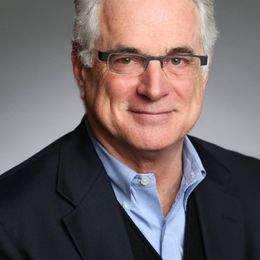How Other Countries Could Help Fix the U.S. Retirement System
Places like Australia, Great Britain and Norway offer a few smart ideas
Even in these deeply polarized times, you won’t get much pushback saying that America’s retirement system is flawed. Perhaps there are lessons we can learn from policy experiments and reforms in other countries? The answer is “Yes,” especially by looking to Australia, Great Britain, Israel and Norway — although with several critical cautions.

First, the cautions: Social security, pensions and retirement savings systems are unbelievably complicated. Also, easy comparisons across borders are difficult to make because retirement systems evolve over time, reflecting deep cultural norms, national institutions and political compromises. An attractive European pension design might be tough to transplant into the U.S. since powerful unions play a major role there, but American private-sector unions today wield little power.
Perhaps most importantly, no country has figured out the right formula for ensuring fiscal soundness, economic dynamism and retirement security.
“One thing I can tell you, everyone complains about their own system,” laughs Kurt Winkelmann, pension policy senior fellow at the University of Minnesota, Twin Cities and founder of Navega Strategies.
Fixing Our Retirement System: The First Question to Ask
That said, “one place to start is with the question, ‘What is broken about the U.S. system that needs to be fixed?’” said Courtney Coile, an economist at Wellesley College. (Her clarion call to experts at the Retirement Research Consortium annual meeting in August asking them to pay more attention to international reforms is what inspired this column.)
One thing about the U.S. retirement system that clearly needs fixing: the vast numbers of people who aren’t contributing to retirement savings plans. More than a third of our private-sector workers lack access to an employer-sponsored retirement savings plan. Another 31 percent of those with workplace-based retirement plans don’t participate, calculates Pew Research Center.
Tax breaks and years of personal-finance stories on how to save for retirement (I’ve written many of them!) haven’t nudged everyone to set aside money for retirement with, say, an Individual Retirement Account (IRA).
“People’s willingness to save on their own in IRAs is not very good,” said Anna Rappaport, chair of the Society of Actuaries Aging and Retirement Strategic Research Program.
What Australia, Israel and Great Britain Do Right
So it’s worth taking a gander at how people save for retirement in Australia, Israel and Great Britain.
Heard of the term superannuation? Maybe everyone should become familiar with the word used in Australia for its mandatory defined-contribution retirement savings system; “defined-contribution” means a plan like a 401(k) where workers contribute.
The widely admired plan was introduced in 1992 and more than 90 percent of Australian workers participate. Employers put in a mandatory 9.5 percent of employee earnings. Employees can put in more if they want. Tax provisions encourage people to withdraw their money gradually after age 60, rather than in a lump sum. Israel and Great Britain have also introduced mandatory private pension contributions.
Yes, “mandatory” is a toxic word on Capitol Hill these days. Nevertheless, after surveying the mandatory defined-contribution systems in Australia, Israel and Great Britain, Santa Clara University finance professor Meir Statman is convinced it’s the right path for U.S. policymakers to take with our aging population.
“The retirement savings problem in the United States and many other countries is acute, and attempts to nudge non-savers toward voluntary defined-contribution savings have left many behind,” he wrote. “Mandatory defined-contribution would constitute a second layer in a retirement savings pyramid, above a first layer of Social Security and below a third layer of voluntary savings.”
Over to Norway
And now, let’s take a trip to Norway and look at its sovereign wealth fund, the world’s largest pool of institutional capital. It’s a testament to transparency about fees and investment objectives, providing the kind of information to its residents that American employers might want to emulate. Transparency is a force for good governance.
Norway’s sovereign wealth fund embraces the discipline of publishing every relevant piece of information to the public. The managers are unusually open about the fund’s investment objectives and investment considerations.
“They have thought long and hard about investment policy and transparency,” says Winkelmann.
Unfortunately, retirement reform isn’t at the top of policy agenda list in Washington D.C. right now. But with the population aging, the pressure to act will grow. Learning as much as we can about what works well abroad could help American policymakers move quickly when the time comes.


